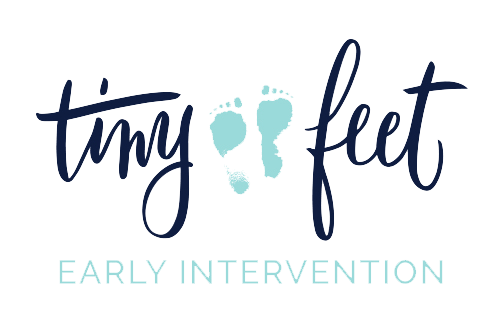Welcome to Early Intervention 101! This entry is the first in a series where we will be delving into the world of Early Intervention.
98% of the time I tell someone about Tiny Feet or that I am an Early Interventionist, the first thing they say is, "What's Early Intervention?" My goal for today (and this series) is to briefly describe Early Intervention without all of the professional education jargon we (those of us in this field) use unintentionally.
First, lets look at the words-
- Early- We work with children from newborn up to 5 years old.
- Intervention- Our job is to "intervene" in these early years, teaching parents activities and strategies that they can use with their children.
Two things to note from my description above
"Children learn through play!
- I did use the word "teaching." This is intentional. Early Intervention is an educational service funded through education law (more on that in another post). We are not medical. No doctors, nurses, or therapists here. We are teachers. We teach. Think happiness and rainbows here. Haha! Anyways, we teach parents or caregivers strategies and activities based on the latest research. So much of what we do looks like play, and it is! Children learn through play! However, our play is very intentional. Each activity we use is selected because of the parent's concerns and the child's current developmental skills. Much more on developmental concerns to come!
- Use of "intervene." Why are we intervening? (SIDE NOTE- That sounds awful... Truly cringe worthy... Please don't take it that way. We are not a bunch of people from the government zooming in to take over a situation. We are simply people who have dedicated our lives to helping children in need, taking the time to become professionals. This culmination makes for a word such as "intervention" in the field of education.) Babies or children are eligible (qualify for, authorized, or entitled to) if they have a qualifying condition or have an area of delayed development such as language or motor skills. We are "intervening" in these early years to help children who are behind in development or who may have a condition that causes them to develop more slowly. The brain is more "plastic" or flexible during the first three years of life, so these interventions are critical and will have great impact down the road.
In a Nutshell--- Early Intervention is a service for babies and children with a diagnosis/special need or developmental delay. Early Interventionists teach families strategies that will help their children reach developmental milestones.
What questions do you have?

